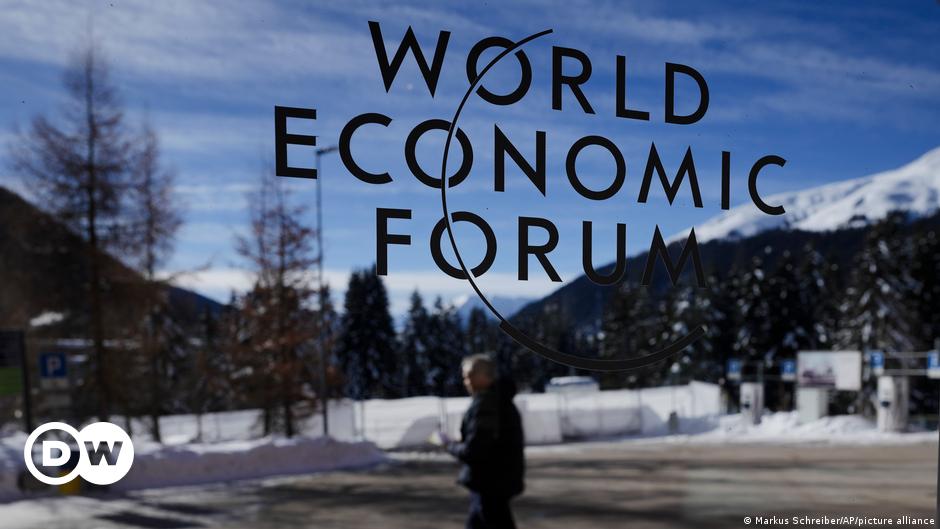“We are astonished that you have not answered the simple question we have been asking for three years: When will you tax the extremely wealthy?” begins the open letter from an initiative called Proud to Pay More..
The proposal, addressed to the “Davos World Leaders”, was handed to world leaders on Wednesday as they gathered in the Swiss ski resort for the World Economic Forum (WEF). Signatories call for higher taxes on the super-rich.
Notably, many of the signatories are among the world's wealthiest people.
Proud to Pay More is made up of at least 260 billionaires and millionaires, who say steps must be taken to “address the dramatic increase in social inequality.” They say we've reached a “tipping point” and that the “costs to economic, social and ecological stability risks are severe and growing every day, which means we need to act now.”
They argue that the campaign for a fairer tax system represents a “return to normalcy” and that taxing the wealthy would “transform excessive and unproductive personal wealth into an investment in our common democratic future”.
Billionaire: 'I believe we should pay more taxes'
“A moment's delay would entrench a dangerous economic status quo, threaten democratic norms, and shift the responsibility onto our children and grandchildren,” wrote the signatories, who include Valerie Rockefeller, Abigail Disney and three heirs of Austrian Marlene Engelhorn, whose ancestor was Friedrich Engelhorn, founder of the German chemical company BASF. “We not only want to be taxed more, we believe we must be taxed more.”
Engelhorn, who has criticized Austria's lack of inheritance tax, recently made headlines when he said he wanted to redistribute 25 million euros ($27 million) of his inheritance.
“I inherited wealth and power without doing anything,” she told reporters.
She established a Good Council for Redistribution to devise solutions for the “good of society as a whole.”
The rich get richer
The gap between rich and poor continues to widen around the world, according to the 2022 World Inequality Report.About 38% of the increase in global wealth between 1995 and 2021 went to the top 1% of people. Just 2% went to the bottom half – the world's poorest 4 billion people. And after the COVID pandemic hit in 2020, the wealth of the world's billionaires increased more than ever before.
There have already been some attempts around the world to increase taxation on the ultra-wealthy: during the 2019 US presidential election, for example, Senator Elizabeth Warren proposed imposing an “ultra-riche tax” on every dollar of net worth over $50 million.
But implementing such measures is not easy.
“The people who signed the petition in Davos are mainly heirs who don't run companies and are therefore uncomfortable with huge amounts of wealth they didn't create,” explained Stephan Bach of the German Institute for Economic Research (DIW) in Berlin, “but they tend to be isolated voices.”
He said most of the super-rich were cautious on this point, and in fact faced strong political resistance from industry groups that, thanks to their collaboration with lobbying groups, have good connections to high-ranking politicians.
“A lot of great wealth is tied up in the business as well,” Bach said.
Business groups say the idea is that low taxes for entrepreneurs create incentives to invest and create jobs, while high taxes jeopardize jobs and investment and may even cause company successors to choose not to run the companies they are supposed to take over.
“This argument essentially stifles any political debate about wealth or inheritance taxes,” Bach said.
Europe's rightward shift makes change unlikely
In general, when it comes to taxing large amounts of wealth, it doesn’t make sense for a country to act alone.
“Big international companies, and of course the super-rich, all act in accordance with international law,” Bach continued, explaining that billionaires can easily relocate to other countries with more favorable tax regimes. “In the end, nothing is gained if only well-behaved German small and medium-sized businesses that are loyal to their country are exploited.”
But he noted that a balanced combination of higher taxes on the highest income earners and a wealth tax could bring in more revenue for the Treasury.
“But of course this can only be done in an internationally coordinated way,” he said, adding that there had been some successful attempts in 2021 to curb tax evasion by large companies.
More than 130 countries, accounting for 90 percent of the world's economic output, have also agreed to a minimum corporate tax rate of 15 percent, seeking to prevent companies from relocating to other countries with lower rates. Last year, several EU lawmakers proposed a similar global minimum tax on extremely high personal wealth.
But Bach doubts that there will be any progress on this front in the near future, which is partly linked to the shift to the right across Europe.
“There's very little left of a majority on the left,” he said, explaining that it's important for conservative and liberal parties to work together on tax measures, but that these parties are inherently pro-business.
He said nothing was likely to happen in Germany “in the near future” and that “it's even harder to coordinate something like this on an international scale.”
This article was translated from German.

